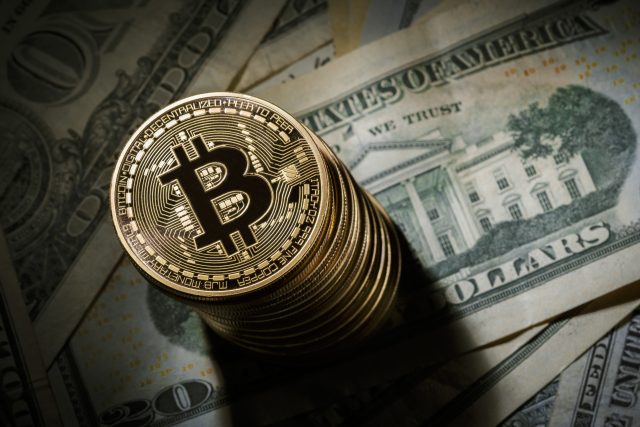Coinbase stunned the cryptocurrency world on Tuesday evening by announcing that it would add full support for Bitcoin Cash, a payment network that split off from the mainstream bitcoin network in August. Coinbase users can send and receive Bitcoin Cash coins, and they'll soon be able to buy and sell them as well.
The news sent the value of Bitcoin Cash soaring more than 30 percent, from $2,800 to $3,800 per coin. Trading on Coinbase's cryptocurrency exchange, GDAX, briefly showed a much bigger gain, with Bitcoin Cash prices as high as $8,500 before trading was suspended. Other exchanges have not shown Bitcoin Cash prices that high, suggesting that these high prices may have merely been a technical glitch. At publication time, the price of Bitcoin Cash was around $3,300.
Meanwhile, the price of conventional bitcoins fell from $17,800 to less than $16,000—a decline of 10 percent—in the wake of the Coinbase announcement. It has since regained some ground and is now worth $16,800.
Markets reacted strongly to the news because Coinbase's endorsement could provide a big credibility boost for Bitcoin Cash. Bitcoin Cash supporters have been arguing with supporters of the conventional bitcoin network over whose version of bitcoin better reflects the vision of bitcoin founder Satoshi Nakamoto. Coinbase has millions of users, many of whom haven't ventured beyond the relatively safe confines of the Coinbase service. They now have the option to purchase Bitcoin Cash alongside the other cryptocurrencies Coinbase supports: regular bitcoins, litecoins, and ether.
The scaling debate that fractured the bitcoin world

The bitcoin community has fractured into two rival camps with dramatically different visions for bitcoin's future.
The issue that has divided the bitcoin world is over the best way to scale the bitcoin network, which is built around a list of transactions called the blockchain. Every 10 minutes, on average, the network adds a new block, and blocks are limited to one megabyte, which has translated to around 2,000 transactions per block.
For years, one faction of the bitcoin world has advocated increasing that 1 megabyte limit, which would allow the network to process more transactions per hour. But others objected, arguing that larger blocks would drive up the storage and bandwidth requirements to fully participate in the bitcoin network. That, they argued, would undermine the decentralization that is bitcoin's most important virtue.
This small-block faction has advocated an upgrade called segregated witness that went into effect earlier this year. It allows a more efficient transaction format that could roughly double the blockchain's capacity if it becomes widely used. But even with that upgrade, demand for the network has been outstripping its capacity, leading to soaring fees and other problems.
The fight came to a head in August when a group of big blockers created a new version of bitcoin called Bitcoin Cash. Bitcoin Cash supports blocks up to eight megabytes, and its creators are committed to further block-size increases, as needed, to avoid congestion problems.
There have been many bitcoin spinoffs in the past, but this one was unusual because it forked off from the existing bitcoin blockchain. Prior to August 1, the Bitcoin and Bitcoin Cash blockchains are identical. This means that anyone who owned one bitcoin ahead of the fork on August 1 suddenly owned one unit of Bitcoin Cash after the new network launched.
And surprisingly, the split seems to have created billions of dollars in new wealth. The price of regular bitcoins didn't fall significantly when Bitcoin Cash was created, while newly minted Bitcoin Cash coins became worth around $600 each. Since August, the value of all Bitcoin Cash in circulation has soared from around $10 billion to $60 billion.
After Bitcoin Cash launched, the mainstream bitcoin community continued arguing about whether to increase the size of the regular bitcoin blockchain. A deal announced in May was supposed to pair larger blocks with the adoption of segregated witness—an upgrade that was most popular among small-block advocates. But while segregated went into effect as planned, the big-block proposal collapsed in November in the face of determined opposition from small-block advocates.
"Bitcoin Cash is what I started working on in 2010," tweeted prominent bitcoin developer Gavin Andresen a few days later. "A store of value AND means of exchange." It was a pointed dig at the mainstream Bitcoin network, where slow transactions and rising fees have made it an increasingly unappealing way to make everyday payments.
Small-block advocates have pinned their hopes for long-term scaling on Lightning, a new kind of payment network that is designed to be layered on top of Bitcoin. Lightning uses a technology called payment channels to allow users to make many off-chain transactions that are eventually grouped together into a single on-chain transaction. Three independent teams are working on the technology, and they released Version 1.0 of the lightning specification earlier this month.
Today, there are essentially two bitcoin communities. As more big-block advocates have shifted to Bitcoin Cash, the mainstream bitcoin network has become increasingly dominated by small-block thinkers. And the two camps are increasingly hostile to one another.
That hostility was on full display on Tuesday night as the /r/bitcoin subreddit—which is controlled by small blockers—lambasted Coinbase for adding support for Bitcoin Cash. Rumors circulated in the small-block world that Coinbase was secretly trading Bitcoin Cash ahead of the announcement, but Coinbase says its employees have been banned from trading Bitcoin Cash for weeks ahead of Tuesday's announcement. In contrast, the big-blockers on the rival /r/btc subreddit hailed the Coinbase announcement.
Big blockers are betting high fees will drive users toward Bitcoin Cash

While the mainstream bitcoin network implements segregated witness and waits for Lightning to be ready, transaction fees have skyrocketed. Average daily transaction fees have been above $20 for nearly two weeks, and on Tuesday, they reached a new record of $32. In contrast, the average cost of Bitcoin Cash transactions has been between 20 and 30 cents.
Obviously, Bitcoin Cash's much lower transaction fees are a big advantage. But right now the regular bitcoin network benefits from much stronger network effects. If you run a business thinking about getting into cryptocurrency, it makes sense to support bitcoin first because it's the most widely used and is likely to have the most customers interested in spending money. That, in turn, makes bitcoin valuable to end users, which encourages more users to acquire some.
The question is whether the bitcoin's high fees will erode the advantages of these network effects over time. Bitpay, a startup that helps merchants accept bitcoin payments, recently announced it was adding support for Bitcoin Cash. Now Coinbase is doing the same thing. If bitcoin's transaction fees remain at today's sky-high levels, a lot of other businesses will be looking at whether they should take the same step.
Of course, there's no guarantee that companies would adopt Bitcoin Cash rather than one of the many other cryptocurrencies out there. But one advantage of Bitcoin Cash is that it is almost identical to regular bitcoin aside from the block-size difference. This means that a business that's used to dealing with vanilla bitcoin should find it relatively easy to work with Bitcoin Cash as well.
If Bitcoin Cash continues to gain ground on vanilla bitcoin, the two currencies could eventually reach a tipping point where the lower fees on the Bitcoin Cash network give it a decisive advantage. If both networks are largely supported by the same companies and they have roughly comparable market values, then users might see little reason to pay the higher fees on the mainstream Bitcoin network.
On the other hand, Bitcoin Cash might never catch up to bitcoin proper. Bitcoin Cash enjoyed a similar rally last month after it became clear that the mainstream bitcoin network would not increase its block size any time soon. The value of Bitcoin Cash doubled in a matter of hours while bitcoin's price slumped. But that shift did not prove to be the beginning of a trend. Bitcoin Cash subsequently lost ground against bitcoin and has remained far below bitcoin's value ever since.
[contf] [contfnew] 
Ars Technica
[contfnewc] [contfnewc]
The post Bitcoin rival Bitcoin Cash soars as Coinbase adds support appeared first on News Wire Now.























































